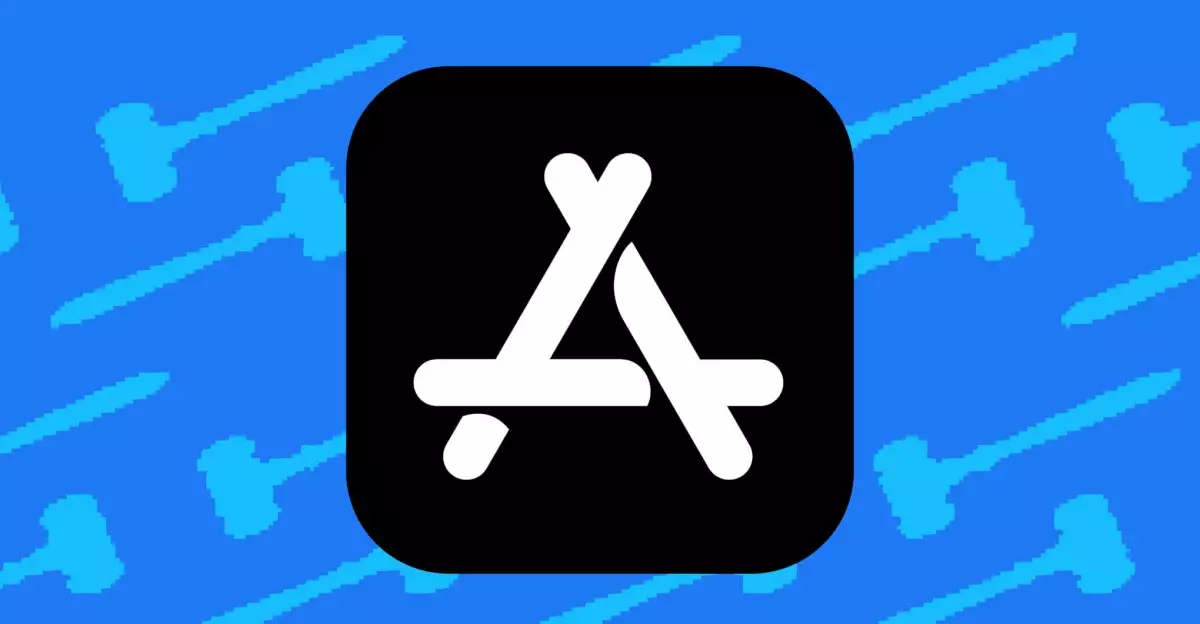In the relentless pursuit of compliance, Apple has rolled out a significant transformation of its App Store framework to align with the European Union’s Digital Markets Act (DMA). This new strategy could be perceived as a proactive pivot for the tech giant, albeit amidst a backdrop of challenges and criticisms that often accompany such sweeping changes. The tiered fee structure unveiled by Apple aims to offer different levels of service for developers and promises to reshape the economic landscape of the App Store.
The fundamental premise of this new structure is built on a dual-tier system: Tier 1 and Tier 2. For developers opting for Tier 1, which comes with a lower 5 percent commission on in-app purchases, access to essential features will be limited. The implications of this decision are critical; developers who can’t afford the higher fees may find their app experience severely curtailed. This model raises substantial concerns about equity among developers, especially smaller ones who depend heavily on robust promotional tools and features that are locked behind a paywall at Tier 2.
Understanding the Economic Implications
At first glance, the allure of a reduced commission percentage may entice some developers to switch to Tier 1, but a deeper analysis reveals that this may stifle innovation in the long run. By withholding advanced functionalities such as automatic updates and promotional tools, Apple risks putting its smaller developers at a disadvantage. Epic Games CEO Tim Sweeney articulated his concerns regarding this new tier structure, arguing that it restrictively impacts developers who opt for the cheaper route. Such limitations could foster a climate of mediocrity instead of one where creativity flourishes, as more developers might shy away from investing in app enhancements and user experience.
Furthermore, the introduction of the Core Technology Commission adds a new financial layer to the current business model. Although Apple positions this commission as a means to navigate compliance, it could also act as an unforeseen obstacle for app creators. The existing €0.50 per download fee imposed on apps with over a million annual installs underscores how Apple is deepening its grip on the revenue stream that flows through its ecosystem. While Apple touts this change as a unifying move towards a “single business model” by 2026, the ramifications of these policies suggest a paradox; instead of simplifying the landscape for developers, Apple might inadvertently complicate it.
Apple’s Legal Struggles and EU Relations
The push for compliance is undoubtedly motivated by Apple’s ongoing legal battles in Europe, particularly regarding the recent €500 million fine stemming from the EU’s decision against its “anti-steering” practices. The EU maintained that Apple was not adequately demonstrating the necessity of its App Store restrictions, a ruling that has broader implications for how tech companies operate under European regulations. As the stakes continue to rise, Apple’s decision to appeal this penalty indicates a willingness to further contest these regulations rather than fully surrender to them.
Apple’s proactive changes, therefore, can be viewed as a double-edged sword. On one hand, the company is clearly taking steps to accommodate regulatory criticisms; on the other, it risks alienating the very developers it claims to support in the process. The EU has made it clear that it is willing to impose further penalties should Apple fail to comply with directives, placing even greater pressure on the company.
The Path Ahead for Developers
Every development in this scenario will be crucial for shaping the future of app distribution in Europe and setting precedents that may influence other geopolitical jurisdictions. Developers must remain vigilant and strategically weigh the advantages and disadvantages of Apple’s new fee structure. The risk of creating a tiered experience could lead to fragmentation within the app ecosystem, resulting in user dissatisfaction and lost opportunities for developers, especially those who cannot or choose not to pay for Tier 2 features.
As this situation unfolds, the dialogue between Apple, developers, and regulatory bodies will be critical. It is essential that developers voice their concerns and advocate for a more equitable mobile marketplace. Only through collective bargaining can they hope to influence the direction of such significant platform changes and ensure that innovation remains a priority over profits in an increasingly complicated digital landscape. The future of app development stands poised at a crossroads, the outcome of which could redefine the very nature of app ecosystems for years to come.

